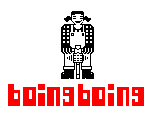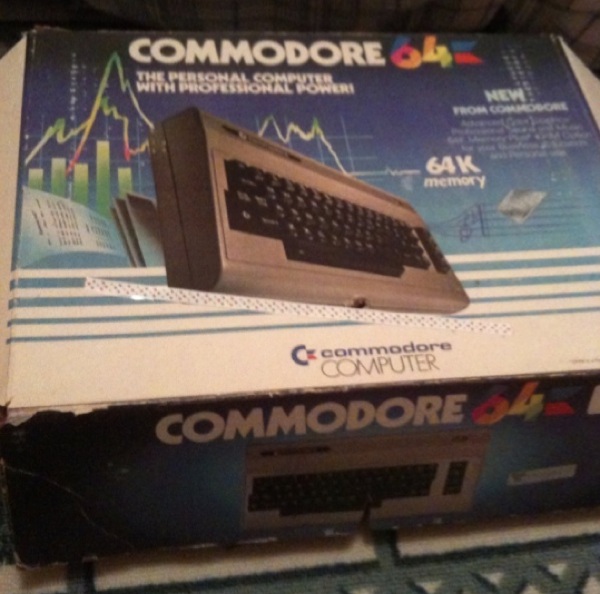The Latest from Boing Boing |  |
- Avatar hits $1bn
- TSA: tighter screening for flyers coming into USA from 14 countries
- Ten things thou shalt not tweet
- Report: TSA Special Agent who threatened blogger spaces out, drops notebook in public place
- Flat pack ostrich bottom table
- Commodore 64 unboxing
- Make a machine that turns itself off
- America's secret "ICE Castles," immigrations and customs prisons
- Q and A with US Torture Memo attorney John Yoo
- Prescription for consumers challenging academic textbook cartels
| Posted: 03 Jan 2010 06:39 PM PST Avatar 's made a billion dollars in 17 days. Haters may take some vanishingly small measure of solace in the fact that ticket price inflation means that despite the incredible financial haul, it may have been seen by only half as many people as Titanic. |
| TSA: tighter screening for flyers coming into USA from 14 countries Posted: 03 Jan 2010 10:28 PM PST The TSA issued a security directive today which states that starting tomorrow, anyone flying into the US "traveling from or through nations that are state sponsors of terrorism or other countries of interest will be required to go through enhanced screening," thought "enhanced screening" is not defined. The NYT reports the 14 countries are: Cuba, Iran, Sudan, Syria, Afghanistan, Algeria, Lebanon, Libya, Iraq, Nigeria, Pakistan, Saudi Arabia, Somalia, and Yemen. |
| Ten things thou shalt not tweet Posted: 03 Jan 2010 04:27 PM PST |
| Report: TSA Special Agent who threatened blogger spaces out, drops notebook in public place Posted: 03 Jan 2010 04:34 PM PST  (Click for large). Oh, those TSA agents are special alright. Mary Kirby, aka Runway Girl, reports that one of the federal agents who showed up at travel writer Steven Frischling's house to issue a subpoena and search his computer for the source of the agency's leaked security directive flaked out and left his notebook lying in a public place. Yes, a notebook with notes on the very important Department of Homeland Security investigation they were conducting. No TSA response on this one yet. Kirby blogs the photo above, and asks: Would you define such a misstep as complete ineptitude? Would you wonder how the agency protects the information it gleans from other - more important - investigations (you know, ones involving threats against our nation)?Such tough questions! These were the same agents who (according to the Wired report) showed up armed at Frischling's home, told him "I don't think you know how much trouble you're in," said they had to run to Wal-Mart to buy a hard drive to burn his MacBook contents to, came back and couldn't figure out how to get that to work, then seized his hard drive and took off, returning it later in malfunctioning order after they'd copied what they wanted. Wonder what else was in the little notebook ("created with pride by Americans who are blind.") Presumably, some directly identifying information which is not shown in the photos Kirby chose to publish. Exclusive: TSA agent's notebook discovered in public place (flightglobal)
Previously:
|
| Flat pack ostrich bottom table Posted: 03 Jan 2010 01:57 PM PST  The curiously cool ibride Diva Ostrich Console Table is £234.48 from Nest.co.uk. Great inspiration if you know someone who has a laser cutter or ShopBot. I'd love a menagerie of animal bottom furniture pieces. (Thanks, Michael-Anne Rauback!) The curiously cool ibride Diva Ostrich Console Table is £234.48 from Nest.co.uk. Great inspiration if you know someone who has a laser cutter or ShopBot. I'd love a menagerie of animal bottom furniture pieces. (Thanks, Michael-Anne Rauback!) |
| Posted: 03 Jan 2010 01:59 PM PST |
| Make a machine that turns itself off Posted: 03 Jan 2010 11:05 AM PST Instructables has instructions for building this Claude Shannon-style box that turns itself off. |
| America's secret "ICE Castles," immigrations and customs prisons Posted: 03 Jan 2010 10:34 AM PST "If you don't have enough evidence to charge someone criminally but you think he's illegal, we can make him disappear." —James Pendergraph, former executive director of Immigration and Customs Enforcement's (ICE) Office of State and Local Coordination. From a Nation article on America's immigration prisons. (thanks, Ned Sublette) |
| Q and A with US Torture Memo attorney John Yoo Posted: 03 Jan 2010 10:31 AM PST Torture Memo attorney John Yoo, on his former boss, George W. Bush: "No, I've never met him. I don't know Cheney either. I have not gone hunting with him, which is probably a good thing for me." NYT. |
| Prescription for consumers challenging academic textbook cartels Posted: 03 Jan 2010 10:47 AM PST  I didn't plan to get into an overview of U.S. academic textbook marketing politics, but a couple of readers took issue with my brief mention of this highly unusual consumer category. Since a lot of Boing Boing readers are students (and faculty, it turns out), I thought I'd give an overview so everyone can make more informed consumer choices. Faculty behavior is a key factor that drives textbook pricing in academia. Though many academics will claim they are above being swayed by marketers, their consumer behavior is influenced heavily by manufacturers and distributors. I'll use a prescription analogy, summarizing the excellent 2006 overview by Dr. James V. Koch, commissioned by Congress. In this analogy, faculty = physicians, and textbook publishers = drug companies trying to influence them. I also include a link to the rebuttals of Koch's work by the Association of American Publishers and others, as well as some great info for students from Public Interest Research Group and some open-source textbook alternatives. After this, I'll get back to less wonky posts, promise! The academic textbook consumer category 1. General information 2. Faculty behavior 3. Publisher and bookseller behavior 4. Institutional behavior 5. Student behavior 6. Koch's suggested remedies This last option is where things will head once consumers finally get fed up with this cartel and its antiquated business model. One of the main reasons I am a big Wikipedia chick is because systems like this textbook oligopoly are killing our culture. Check out our sister project Wikibooks or these other excellent open-source alternatives: Wikibooks Flat World Knowledge Open Source Text Open Textbook The best consumer-POV site on the topic is the "Affordable Textbooks" page from U.S. PIRG (Public Interest Research Group): Sources: Congressional Advisory Committee on Student Financial Assistance: College Textbook Cost Study Plan Proposal Summary of the hearing (see Session II) Reply from Association of American Publishers, Inc.
You have over $5 billion in purchasing power! Fight for your consumer rights! |
| You are subscribed to email updates from Boing Boing To stop receiving these emails, you may unsubscribe now. | Email delivery powered by Google |
| Google Inc., 20 West Kinzie, Chicago IL USA 60610 | |



No comments:
Post a Comment